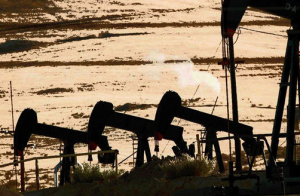
Last week, the House Natural Resource Committee passed legislation called the Consolidated Land, Energy and Aquatic Resources Act, known as the CLEAR Act. Among other things, this legislation includes some desperately needed reforms for harmful oil and gas development currently turning our public lands and wildlife habitat into industrial zones. The good news is that the bill would require oil and gas operators developing federal oil and gas rights to adopt "best management practices" - meaning technologies and approaches that minimize threats to our health and environment. The bill requires that bonds be set at levels high enough to reclaim sites after drilling is completed, and prohibits any companies who don't reclaim drilling sites from getting new leases. And it requires public disclosure of the chemicals used in drilling or hydraulic fracturing within 30 days after any well is completed. Importantly, the bill also repeals legislation passed by Congress in 2005 that allowed companies to go ahead and drill on public lands without going through a full environmental review process.
In addition, the CLEAR Act would create a new Bureau of Safety and Environmental Enforcement within the U.S. Department of the Interior, so that safety and environmental inspectors are independent from the staff who approve leasing and may not be eager to point out problems on leases they approved. The bill would also establish a National Oil and Gas Health and Safety Academy. We need improvements like these both onshore and offshore.
It's important to keep in mind that all this oil and gas belongs to you, me, and every other American. The government is entrusted with leasing it on our behalf, and should ensure that any drilling is done with the highest standards in place and the best possible return to the Treasury. The CLEAR Act includes language to reform how the royalties from our oil and gas are collected and audited to hopefully secure a more fair return to us taxpayers. More, however, needs to be done. While the bill would increase the national minimum acceptable bid for federal oil and gas resources from $2 per acre to $2.50 per acre, keep in mind that some leases on private land are sold for $5000 an acre or more. In other words, companies pumping the oil and gas that belongs to the American people are still getting a sweetheart deal and sending the bill to the taxpayer.
While the bill could be made stronger, we support simple, sensible reforms as first steps toward restoring balance to an oil and gas leasing system that has been skewed in favor of industry for years. Sadly, however, they may not come to the floor of the House for a vote or become law this year. Recent news reports are that Congressional leaders plan to remove these provisions before this bill comes to the floor for a vote, because they don't believe the measures have enough support to win.
Wow. Can it be true that Members of Congress won't support raising minimum lease fees from $2.00 to $2.50 per acre when companies pay thousands of dollars elsewhere, won't support telling the public what is in the chemicals being used on land and near water that belongs to the public, and won't support forcing companies to clean up their dirty messes? I hope not.
This post originally appeared on NRDC's Switchboard.
Amy Mall is a Senior Policy Analyst for NRDC's Land Program. The Natural Resource Defense Council is a non-profit organization dedicated to protecting the environment, people and animals. NRDC was founded in 1970 and is comprised of more than 300 lawyers, scientists and policy experts, with more than one million members and e-activists.

